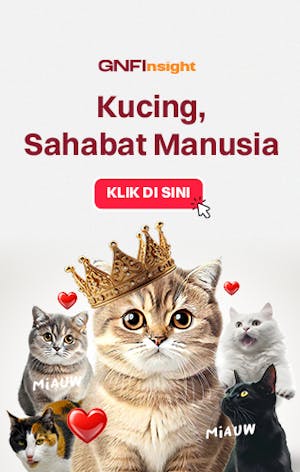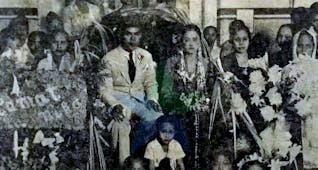It was about nine in the morning, but Bandung’s Pasar Baru market was already bustling. Kiosks were open, tended by vendors busily bargaining with customers. Amid the steady buzz of voices, Malay words could be heard punctuating the flow of conversation. Since direct flights were opened between Kuala Lumpur and Bandung in 2010, the capital of West Java has experienced an influx of Malaysian tourists seeking a budget weekend getaway — and Pasar Baru has become their shopping destination of choice. “I’d heard from friends that you can bargain for quality goods here,” said 21-year-old Ahmad Syahmi Ramli, who was visiting with his sister from Terengganu, in Malaysia’s northwest. “Things are much cheaper here compared to the markets in Malaysia.” Ahmad and his sister, Rosnadhirah, 24, were traveling on a package tour that was also taking them to Tangkuban Perahu, a dormant volcano north of the city, and other tourist attractions in and around Bandung. “We’re still looking around,” Rosnadhirah said. “I’m trying to find some embroidered cloth. Some friends of mine bought beautiful fabrics in Bandung.” Ahmad said the clothes at Pasar Baru were not really his style, but that he had found a wholesale factory outlet in the Kosambi area where he had bought a couple pairs of jeans. “Bandung has so many FOs [factory outlets] lined up on one street,” he said. “I went to the UK and to Turkey and I thought they were quite fascinating, but Bandung has so many more FOs. The prices are really, really cheap here.” Jaimaah, a 60-year-old resident of Malaysia’s Perak state, agreed. She was on her third shopping trip to the city with her husband and children to buy Muslim dresses and veils to wear while praying. “They have beautiful embroidery here,” she said. “But you have to be able to bargain to get the cheapest price.” Ezah, another Malaysian tourist, said she didn’t bother bargaining for every item she bought because “everything is so cheap already.” She said that back in Malaysia she would have to spend 60 ringgit ($19) for just one dress, while in Bandung she could get three dresses for the same price. “When I come here, I always buy dresses, jeans and veils in bulk,” she said. But aside from the shopping, Jaimaah and Ezah said they had fallen in love with the city and its people. Since colonial times, Bandung has been a favored destination for weekend escapes. Dubbed the “Paris of Java” by Dutch colonialists, the city has long been a popular getaway for people living in Jakarta, especially during the holidays. The number of people from Jakarta making the trip has increased since a toll road connecting the two cities was opened by President Susilo Bambang Yudhoyono in 2005. While it used to take three to four hours to commute between the cities, now the trip can be made in under two hours, depending on traffic conditions. Most weekends, cars bearing Jakarta number plates can be seen clogging the streets of Bandung. But now it is the Malaysians who are descending on the city, and Bandung traders couldn’t be happier. To make transactions more convenient, some shop owners now accept Malaysian ringgits, saving their customers the hassle of having to change their currency. “We have to be flexible as traders,” said 33-year-old Sagar, the manager at the Vogue clothing store in Pasar Baru. “There is a money changer upstairs, but it’s a small shop and easily missed, so we thought why not make it easy for our buyers by taking whatever currency they have in their wallets, as long as we can change it later?” Sagar said that Malaysian tourists usually packed the market from Thursday to Monday, when the tour groups tended to arrive. He said Malaysians tended to be big spenders, and could splash out anywhere between Rp 100,000 and Rp 50 million ($11 and $5,500) just on clothes. “Malaysian tourists usually ask for silk, lace and wool,” he said. Sagar said he had seen repeat business from some of the tourists arriving by direct flight from Malaysia. “I think it’s most likely because of the cheap prices compared to Malaysian markets,” he said. “We have felt a significant impact [from the new direct flights], in a good way.” Another trader at the market, Lani, who sells Muslim clothes, said her income had increased by at least 50 percent because of the growing number of Malaysian tourists. “My peak time for sales is usually during Ramadan or Idul Fitri when people shop for new clothes,” she said. “But now with all the tourists coming, my shop is busy all year round.” Lani said tourism was good for everyone in Bandung. “It’s not only me. You can see that everyone from bottled tea sellers to souvenir sellers are getting their share as well,” she said. “It’s good for our country because the small-scale traders, who are usually neglected, can actually earn a good living for their families.” Lani cheekily admitted that some vendors made even more by increasing their prices for overseas shoppers. “Malaysians are persistent bargainers. So I have to pull a trick or two with the prices to make some profit,” she said. Henri Husada, a hotel and factory outlet owner, said it was up to business owners to take advantage of the opportunities presented by the influx of tourists. Henri, who owns about 20 factory outlets and six hotels in Bandung, said he had started to offer additional services for tourists, such as free city tours by minibus. Tourists are escorted to places of interest around the city, including Henri’s own factory outlets. His Golden Flower Hotel, near Pasar Baru, has also become a popular spot for foreign tourists. “My hotel has become the top destination for Malaysian tourists because it is located right in the city’s downtown,” he said. “Bandung has become like a second home for many Malaysian tourists, and they keep returning during the holidays. We want to make their stay as comfortable and convenient as possible so they will want to stay longer and spend more. Then everyone’s happy.” But as more and more foreign tourists take advantage of the cheap international flights to Bandung, the city’s airport is starting to feel the strain. Eko Diantoro, general manager of Husein Sastranegara Airport, said about 700 to 800 international visitors arrived in the city each day, mainly from Malaysia and Singapore. “Aside from its tourist industry, Bandung’s commerce and trade are also thriving,” he said. “The number of people coming from Malaysia and Singapore on business trips is also increasing.” He added that the number of visitors had already outgrown the airport’s intended capacity of about 300 people per day. “Now that we have more visitors arriving on a daily basis, it is felt that the airport needs to be expanded. That’s why the flight arrivals and departures must be arranged to avoid congestion in the waiting areas,” he said. “When there are flight delays, it can certainly get crowded in here.” There are plans on the table for the airport to be expanded by the end of the year, or in early 2012. “After the expansion, our target is to accommodate three million people a year,” Eko said. For now, there are three airlines serving international flights to Bandung: Air Asia, Firefly and Malaysia Airlines. But that might change in the future. “There are also other airlines that are expressing an interest in operating direct international flights to and from Bandung,” Eko said. News Source: The Jakarta Globe
Cek berita, artikel, dan konten yang lain di Google News














